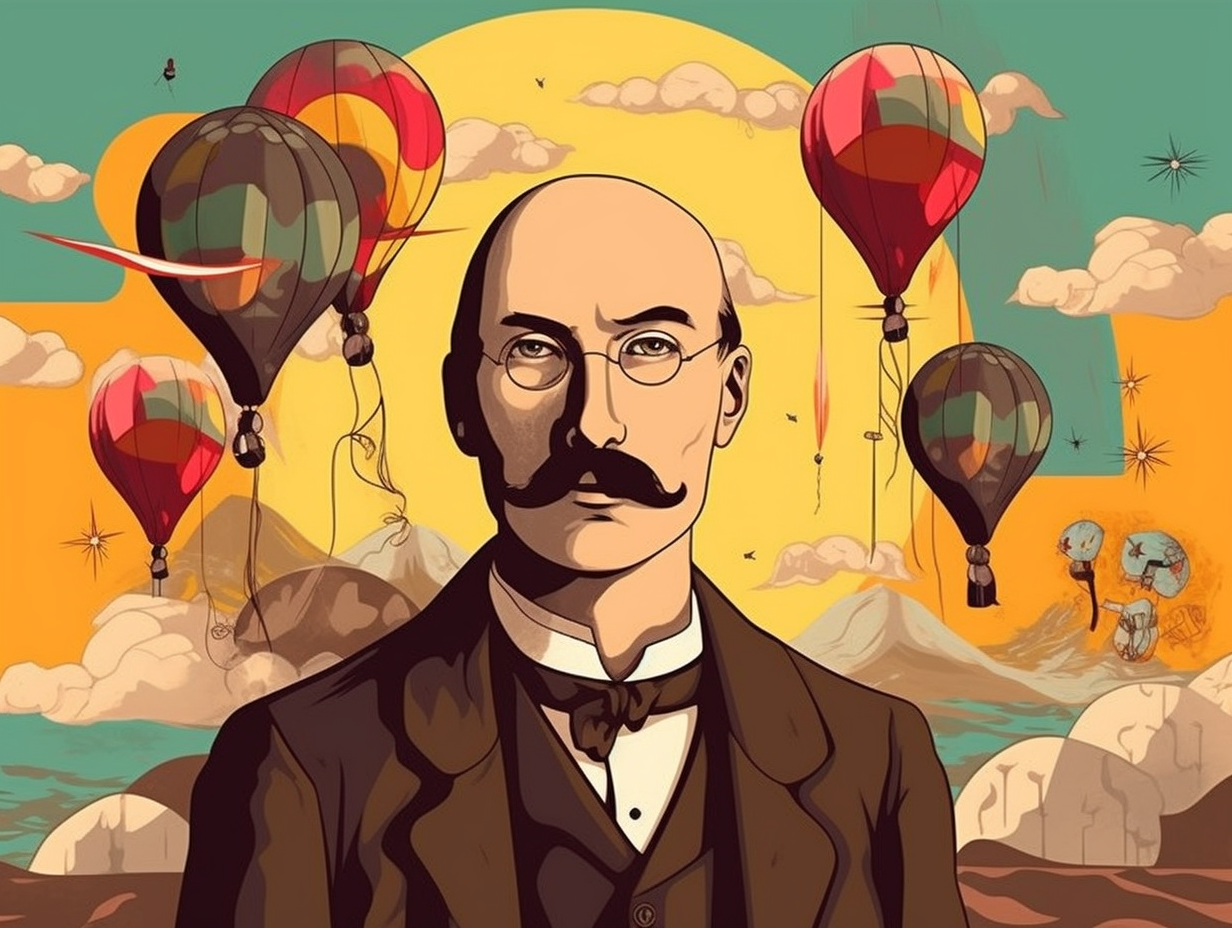Uncover the Excitement: 14 Fascinating Fun Facts About the Scientific Method

1. The Roast of Scientific Discoveries: Peer Review
Ever heard of the "roast of scientific discoveries?" Well, it's actually a thing - it's called peer review, and it's quite the exclusive club: A team of scholarly experts get together and scrutinize each other's scientific work, ready to poke holes and roast away any inaccuracies. The serious reveal: This rigorous process of critique and evaluation not only ensures the validity and reliability of scientific research prior to its publication in esteemed academic journals, but also makes certain that the information we rely upon can truly withstand the test of time (and sarcasm!)
Source => geo.libretexts.org
2. Aristotle: Zoology Game-Changer
Aristotle was the OG logician who loved studying animals way before any wildlife documentary had us all awestruck: This ancient Greek philosopher and scientist not only established the study of formal logic with his syllogistic system but also contributed groundbreaking work in zoology, remaining unmatched until the 19th century!
Source => britannica.com

Did you know fabric fibers led Antonie van Leeuwenhoek, a cloth expert, to accidentally discover the world of microbes, ultimately earning him the title of the Father of Microbiology? Dive into his fascinating journey and how it revolutionized science!
=> Fun Facts about Antonie-Van-Leeuwenhoek
3. Darwin's Procrastination and Finches
Move over, Captain Slowpoke: Charles Darwin was the OG procrastinator when it came to dropping a game-changing scientific theory! You see, Darwin spent nearly 20 years working on his ideas and publications on evolution before he was finally nudged to publish "On the Origin of Species" in 1859, thanks to Alfred Russel Wallace's similar musings on natural selection. This monumental work was ultimately inspired by Darwin's five-year journey on the H.M.S. Beagle to South America and the Galápagos Islands, where finches and tortoises adapted to their environments in a way that got him all a-twitter about natural selection.
Source => genome.gov
4. Sir Francis Bacon: Detective Extraordinaire
Move over Sherlock Holmes, there's a new detective in town: Sir Francis Bacon! This 17th-century sleuth didn't just sizzle; he completely transformed the way we think with his riveting book, the Novum Organum. Bacon's magnifying glass revealed a new method of logic called the Baconian method, which set the stage for modern scientific inquiry by emphasizing scrupulous observations and inductive reasoning. So, next time you're solving a mystery, remember to thank our bacon-sizzling, truth-seeking hero for leaving medieval Aristotelian thinking behind and paving the way for reason and logic.
Source => pioneerinstitute.org

5. Edison's Persistent Path to Lightbulb Perfection
Before Edison could shed light on a room, he had to shed light on how to make the perfect light bulb: Thomas Edison's famous invention of the incandescent light bulb wasn't simply a eureka moment from using the scientific method, but rather a result of persistent experimentation, teamwork, and some out-of-the-ordinary materials like carbon filaments that ultimately brightened up homes and businesses across America, patenting his revolutionary creation on January 27, 1880.
Source => archives.gov
6. The Royal Society: Science Sleuths Since 1660
Move over, Sherlock Holmes: the real detectives have been sleuthing for centuries, armed with their trusty motto "Nullius in verba" (take nobody's word for it) and a penchant for peer review. The Royal Society, founded in 1660, has been crucial to the development of modern science, publishing the world's oldest science journal and backing the works of Sir Isaac Newton and Benjamin Franklin.
Source => royalsociety.org
7. From Alchemy to Enlightenment: Scientific Revolution
Once upon a time in the Land of Rational Thought, when alchemy and astrology were the cool kids on the block, a revolution began that transformed mere mortal minds into mighty brainiacs: The scientific revolution sparked the Age of Enlightenment, giving birth to empirical evidence and rational thinking as the guiding forces in understanding the world - and thus, Isaac Newton's Principia laid the foundation of modern physics, proving that the same principles governed both objects on Earth and celestial bodies, steering us away from the mystical realm and onto the path of legit scientific endeavors!
Source => courses.lumenlearning.com
8. Science's Game of "Telephone": Replicability
Replicability: the scientific world's game of "Telephone" – whispering data and experiments from one researcher to another, with each hoping they don't distort the original message too much: Surprisingly, instead of relying solely on statistical significance, assessing the replicability of scientific research actually involves considering the proximity and uncertainty between two results. However, this varies across disciplines and is often difficult to gauge accurately, thanks to inconsistent methods and the fact that many replicating studies are not explicitly labeled as such.
Source => ncbi.nlm.nih.gov
9. Sherlock's Number Crunch: Quantitative Research
If Sherlock Holmes crunched numbers instead of catching killers, he'd find himself elbow-deep in quantitative research: This powerful method uses impartial statistics to uncover general truths and make bold predictions that can be applied to broader populations beyond the test sample.
Source => gcu.edu

10. Levels of Measurement: Psychologists' Hidden Talents
When psychologists aren't busy concocting mind-bending magical potions like Professor Snape, they dabble in something called levels of measurement – who knew they were scientists at heart? Behold: In psychology research, there are four types of measurement: nominal, ordinal, ratio, and interval data, with each requiring its magnificently different approach to data analysis. Nominal data is like picking a perfect name (or label) for your Pokémon, while ratio data is all about finding that elusive absolute zero – talk about cold hard facts!
Source => studysmarter.us
11. Evolution's Pre-Darwinian Gossip
Hold onto your beaks, folks: it turns out Charles Darwin wasn't the first to flap about the Theory of Evolution! In fact, scientists had already been squawking about it before he set off on the HMS Beagle. What really ruffled their feathers, however, was his fateful trip to the Galapagos Islands, where he unraveled the secrets of "Darwin's Finches" and their beak-tacular variations. This feathery find showcased the scientific method in action, as Darwin pecked away at his hypothesis, tested it to the limit with data collection, and ultimately scruffled up a truly groundbreaking conclusion.
Source => thoughtco.com
12. Dr. Joseph Bell: Real-Life Sherlock & Forensic Pioneer
When he wasn't busy inspiring Mr. Sherlock Holmes to make brilliant deductions, Dr. Joseph Bell was playing "catch the killer" in real life: A pioneer in forensic science, he used his observation techniques to crack criminal cases, even investigating the infamous Jack the Ripper in 1888 and helping to put a stop to the ghastly murders with his sleuthing prowess.
Source => owlcation.com
13. Lab Escapades: Serendipity in Science
Science: where breaking things and making a mess can lead to breakthroughs! Sometimes the lab turns into a glorious mix of careful orchestration and a wild serendipitous circus: researchers estimate that between 30% and 50% of scientific discoveries are unexpected, born from a blend of happy accidents, open-mindedness, and interdisciplinary collaboration – and a large dose of good humor!
Source => en.wikipedia.org
14. Science's Version of Reality Elimination Shows
You've heard of elimination rounds in "Project Runway" and "The Biggest Loser," where contestants' dreams hang by a thread and calories dribble down the treadmill, but did you know: these bear no direct relation to the scientific method, which instead employs hypothesis testing and careful conclusions, making for a more accurate approach to discovery than "who tripped on the runway" or "whose waistline shrunk the most."
Source => cnn.com
Related Fun Facts
















